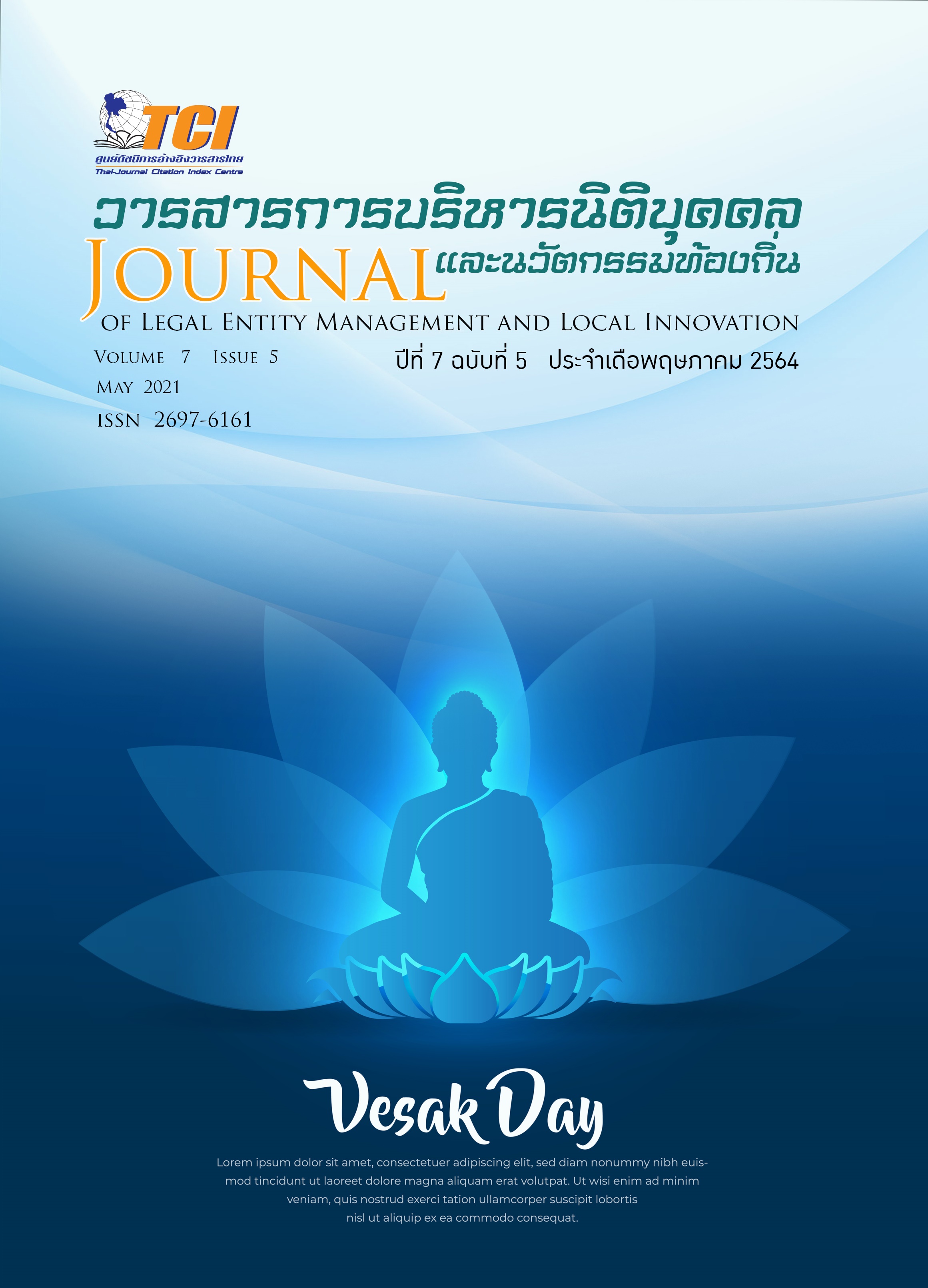People’opinions towards the administration according to the principles of good governance of Don Sak Municipality,Donsak District,Surat Thani Province
Keywords:
Public Opinion, Corporate GovernanceAbstract
Research on public opinion towards the administration, according to the principles of good governance of DonSak Municipality, Donsak District, Surat Thani Province. Objectives 1) To study the level of public opinion towards the administration, according to the principles of good governance of DonSak Municipality, Donsak District, Surat Thani Province, namely effectiveness principles. Main performance Response principle Responsibility principles of transparency and participation principles principle of decentralization, rule of law, equality principle and a consensus-focused principle. 2) To compare people's opinions towards the administration, according to the principles of good governance of DonSak Municipality, DonSak District, Surat Thani Province. 3)To suggest guidelines for the management development according to the good governance principles of Don Sak Municipality, Donsak District, Surat Thani Province. Classified by personal condition. A sample population was 387 people in DonSak municipality. The research instruments were divided into 3 parts : part 1, personal status questionnaire, part 2, questionnaire on the level of opinion of people to the administration according to the good governance principles of Donsak Municipality, Donsak District, Surat Thani Province, including effectiveness principles Main performance Response principle responsibility. The main transparency principle of participation. The principles of decentralization, the rule of law, the equality principle, and the principle of consensus focus are available at five levels: highest, most moderate, least and least, and type 3 questionnaires, opinions and suggestions. The statistics used for data analysis are frequency distribution (Frequency), percentage (Percentage), statistical mean (Mean), standard deviation (t-Test), test (f-Test). One-way ANOVA was analyzed by determining the statistical significance of .05. If a significant difference was found, it was analyzed in pairs by means of LSD. The research results were found that 1) The level of opinions of the people towards the administration according to the principles of good governance Of Donsak Municipality, Donsak District, Suratthani Province Overall, it was at a high level and when considered on a case-by-side basis, the decentralized principle response principle of participation and principle of equality effectiveness main focus on consensus responsibility, performance, transparency and the rule of law. 2) The principles of good governance of Donsak Municipality, Donsak District, Suratthani Province, found that the population classified according to educational level were different, opinions on the administration according to the principles of good governance of Donsak Municipality, Donsak District, Suratthani Province. At .05 level of statistical significance, personnel with gender, age and occupation had opinions on the management according to the principles of good governance. Of Donsak Municipality, Donsak District, Suratthani Province. There is no different at the statistical significance level .05 3) Guidance on the management development according to the good governance principles of Donsak Municipality, Donsak District, Suratthani Province. The researcher has policy recommendations. If the administrator of Donsak Municipality, Donsak District, Suratthani Province The principles of good governance should be maintained and developed in the administration of Donsak Municipality. Going further to the end the management must have a vision of management. Take responsibility Have a sense of work and consider the benefits of the people as the main principle.


